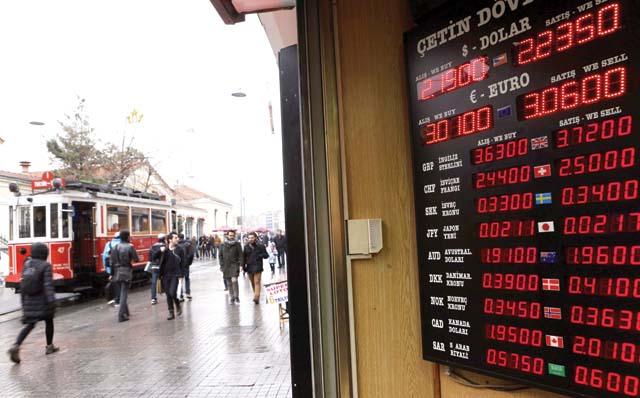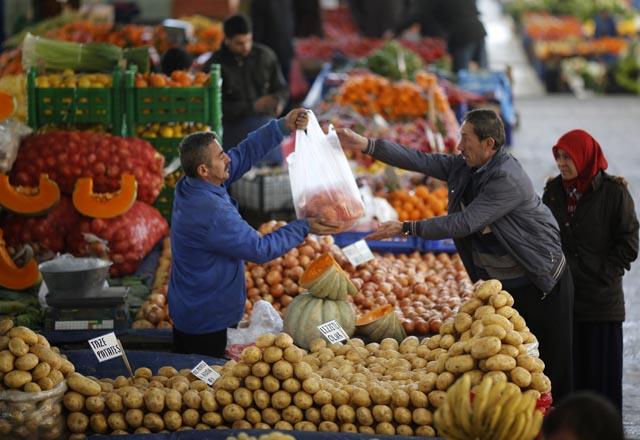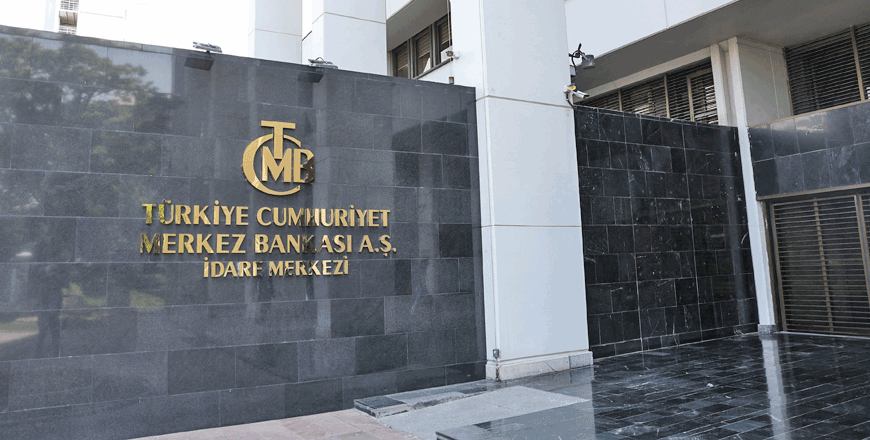ANKARA — A massive rate hike may have stalled the Turkish lira’s fall and salvaged the central bank’s credibility, but it stunts growth at a politically fraught time for Prime Minister Recep Tayyip Erdogan and may not shield Turkey from a fragile global backdrop for long.
The bank raised all its key interest rates in dramatic fashion at an emergency policy meeting late on Tuesday, ignoring opposition from Erdogan as it battled to defend the lira following its fall to a series of record lows.
The boldness of the actions stunned investors, propelling the lira to its biggest one-day gain in more than five years and stirring hopes it would short-circuit a vicious cycle of selling in emerging markets.
But gains of almost 4 per cent on the day quickly faded in later trade on Wednesday as market focus switched to a later monetary policy decision by the US Federal Reserve (Fed).
Erdogan, keen to maintain growth ahead of an election cycle starting in two months, has been a vociferous opponent of higher borrowing costs, railing against what he describes as an “interest rate lobby” of speculators seeking to stifle growth and undermine the economy.
He has yet to react to the midnight rate hike.
But a senior government official, speaking on condition of anonymity, said the bank had made a tough but necessary call.
“The move will certainly have some consequences for the economy, namely a reduction in consumption, higher credit costs and secondly a lower growth rate,” the official indicated, noting the government’s 4 per cent growth target for 2014 looked in jeopardy.
Turkey’s economy grew an estimated 3.6 per cent in 2013, but higher inflation and the withdrawal of cheap money by the Fed have dented hopes of much of an improvement this year.
“Although there will be no immediate effect on politics, approaching elections with low growth will of course have a cost,” the official said.
Fitch, which has a BBB- investment grade rating on Turkey, said the rate hike had reinforced the credibility of the central bank but would dent domestic demand and could lower growth.
The central bank had been struggling to contain the lira’s precipitous slide, with investor confidence damaged by a corruption scandal shaking the government and the global impact of the reduction in US monetary stimulus.
Reluctant until now to make an outright hike, the bank instead tried to defend the currency by burning through foreign exchange reserves and trying to squeeze up borrowing costs on the margins, before biting the bullet and tightening.
“Whatever happened yesterday, Turkey was facing a growth slowdown because it was living beyond its means,” said Neil Shearing, chief emerging markets economist at Capital Economics. “The tightening last night is not all negative. A loss of faith would have been more damaging.”
Self preservation
Finance Minister Mehmet Simsek played down the impact on growth, saying the economy would have suffered greater damage if the credibility of the central bank had been undermined.
“If we don’t preserve credibility, growth would lose ground on a much bigger scale. It would weaken much more rapidly,” Simsek told Turkish broadcaster NTV.
The lira strengthened to 2.18 per dollar in the immediate aftermath of the rate move, a sharp rise from the record low of 2.39 it hit on Monday. But it lost much of its gains by 1630 GMT, trading at 2.239.
Shares in Turkish banks fell 4.9 per cent, causing the wider stock market to underperform emerging market peers, as investors feared higher interest rates would squeeze demand from borrowers and squeeze their profits.
Turkey’s problems had been exacerbated by a sharp global emerging market selloff in recent days. Yet much of the pressure on Ankara is of its own making.
Erdogan has overseen strong economic growth since coming to power in 2002, transforming Turkey’s reputation after a series of unstable coalition governments in the 1990s ran into repeated balance of payments problems and economic crises.
But his increasingly authoritarian style — from a heavy-handed police crackdown on street protests last summer to his reaction to the corruption investigation in recent weeks — has started to unnerve investors.
The graft scandal, which triggered the resignation of three government ministers and the detention of businessmen close to Erdogan, has grown into one of the biggest challenges of his 11 years at the helm, just as he prepares for local elections in March and a presidential race five months later.
He reacted by purging the police force of thousands of officers and seeking tighter control over the courts. The response has been criticised by the European Union and raised investor concern over the rule of law and independence of state institutions.
The central bank’s rate hike after Erdogan’s opposition helps the case that institutions still function independently.
“Some might argue that all this was stage managed,” said Timothy Ash, head of emerging markets research at Standard Bank. “Arguably, when there is much talk of the independence of various state institutions being under threat... the government can perhaps now hail the central bank as being really independent.”


















